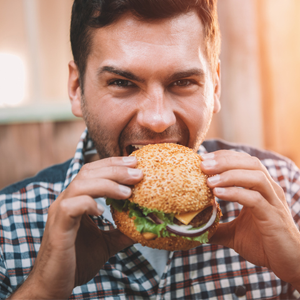
You might want to think twice before you gulp down your dinner at lightning speed.
Eating too fast not only packs on the kilos, but may lead to heart problems, too, according to preliminary research presented at the American Heart Association’s recent Scientific Sessions in California.
Read more: Is eating after 6pm really making you fat?
For the study, researchers from Japan followed more than 1 000 people for five years.
The participants underwent a health exam at the beginning of the study in 2008 and once again toward the end in 2013. They also completed surveys about their diet, exercise and medical history.
After the participants were identified as slow, normal or fast eaters, the researchers found that those who scarfed their food down quickly were more likely to gain weight and have higher blood sugar and bad cholesterol levels.
Read more: This man lost 64kg after cutting out these foods from his diet
Fast eaters were also twice as likely to develop metabolic syndrome – the cluster of risk factors, like high blood pressure or abdominal obesity, associated with conditions like heart disease, diabetes and stroke – compared to people who ate at a normal speed.
That’s because eating fast may cause fluctuations in your blood sugar, which can lead to insulin resistance, lead study author Dr Takayuki Yamaji, said in a statement.
That means your body can’t easily absorb the glucose in your blood, so eventually, you’ll need more and more insulin to allow that glucose into your cells, according to the National Institute of Diabetes and Digestive and Kidney Diseases.
Read more: There’s actually a way to reverse diabetes – here’s how you can do it
Over time, this can develop into type 2 diabetes and heart disease, since high blood sugar levels can damage your nerves and blood vessels.
On the flip side, those who eat slowly are less likely to be obese, according to past research.
So why does taking your time help? Consciously chewing your food actually releases signals of fullness to your brain, says Dr Kathleen Melanson, of the University of Rhode Island, who has also studied eating speed and weight. Once your brain realises you’ve eaten enough, you’ll be less likely to reach for another plate.
Read more: 5 surprising food combinations that could prevent cancer, a heart attack and other health risks
Since there’s no specific formula for how long your meal should last, she recommends focusing on the texture of your food instead.
Try this: chew your food enough so it’s broken down into a chunk-free, smooth consistency. Wait for it hit your stomach, take a breath and then go for your next bite.
This article was originally published on www.menshealth.com
Image credit: iStock




 Publications
Publications
 Partners
Partners














